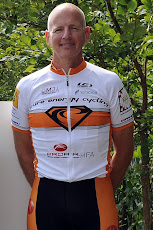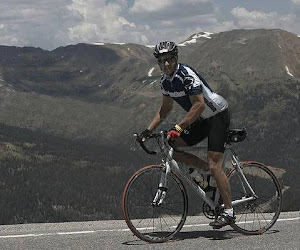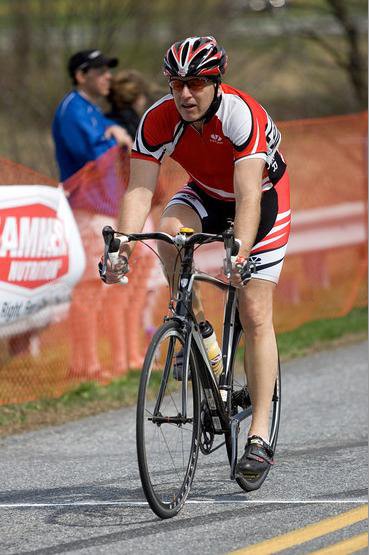
Why do you race/train/ride? Is it because it's fun and you love: the competition, to be outdoors, to keep (or get) in shape, to travel, the social aspect, etc? Regardless of your motive, I'm sure there is one thing in common with all cyclists and that is: they want to have fun and that EVERYONE wants to ride stronger/faster/better.
I'm pretty sure of another thing, and that is MOST cyclists (both recreational riders and racers) don't have a clue of what it takes to ride stronger/faster/better. Sure, if you don't know ANYTHING you can't go wrong by just going out and doing what you feel like doing and putting some miles in the saddle on your own or with a group. After all, you'll see "some" improvement.
But, the road to success (riding the best you can) is understanding where you are (identifying strengths/weaknesses), where you are headed (goals/objectives) and the best way get there (a plan). And, selecting the CORRECT Annual Training Plan, based on the concept of periodization, has a BIG BIG part in the best way to get there. When I say "CORRECT" I say this because there are all kinds of 'canned' Annual Training Plans that you can purchase online that claim they will improve your performance and help you achieve your goals/objectives. No disrespect to the people that sell these programs (after all there are some qualified folks that are trying to help you find that 'road to success- in addition to making $$ which I'm sure is the primary purpose) but how do these canned Annual Training Plans know:
a. what your work/travel/family committments are?
b. what your current fitness level is?
c. what to recommend when you get sick/injured?
d. what your goals/objectives are?
e. what your strengths, and more importantly, weaknesses are? (After all, you race your strengths and train your weaknesses)
f. which workouts are better for you than others?
g. when you want to peak? i.e. your 'A' races vs. 'B' races
h. if you're going to be racing Criteriums, Road Races or Time Trials?
i. when you want to start/finish..as well as start/finish after your first peak?
j. what your nutrition requirements are during each phase?
k. whether you respond better to 2 back-to-back hard workouts or 1 every other day?
l. whether you train by RPE, Heart Rate or Power?
I'm pretty sure of another thing, and that is MOST cyclists (both recreational riders and racers) don't have a clue of what it takes to ride stronger/faster/better. Sure, if you don't know ANYTHING you can't go wrong by just going out and doing what you feel like doing and putting some miles in the saddle on your own or with a group. After all, you'll see "some" improvement.
But, the road to success (riding the best you can) is understanding where you are (identifying strengths/weaknesses), where you are headed (goals/objectives) and the best way get there (a plan). And, selecting the CORRECT Annual Training Plan, based on the concept of periodization, has a BIG BIG part in the best way to get there. When I say "CORRECT" I say this because there are all kinds of 'canned' Annual Training Plans that you can purchase online that claim they will improve your performance and help you achieve your goals/objectives. No disrespect to the people that sell these programs (after all there are some qualified folks that are trying to help you find that 'road to success- in addition to making $$ which I'm sure is the primary purpose) but how do these canned Annual Training Plans know:
a. what your work/travel/family committments are?
b. what your current fitness level is?
c. what to recommend when you get sick/injured?
d. what your goals/objectives are?
e. what your strengths, and more importantly, weaknesses are? (After all, you race your strengths and train your weaknesses)
f. which workouts are better for you than others?
g. when you want to peak? i.e. your 'A' races vs. 'B' races
h. if you're going to be racing Criteriums, Road Races or Time Trials?
i. when you want to start/finish..as well as start/finish after your first peak?
j. what your nutrition requirements are during each phase?
k. whether you respond better to 2 back-to-back hard workouts or 1 every other day?
l. whether you train by RPE, Heart Rate or Power?
The answer is: THEY DON'T! So what do you do? Well, you have two choices you either: a) buy a book (like Friel's Training Bible) and develop your own annual training plan or b) pay someone (preferably a certified USA Cycling Coach) to do it for you. That's if you want to maximize the available training time you have and you want to achieve your goals/objectives for 2010. If you need any help/advice I can help you develop your own annual training plan, or (for a small fee) I can develop one for you.
Train/Race Smart! Power On! Coach Rob





